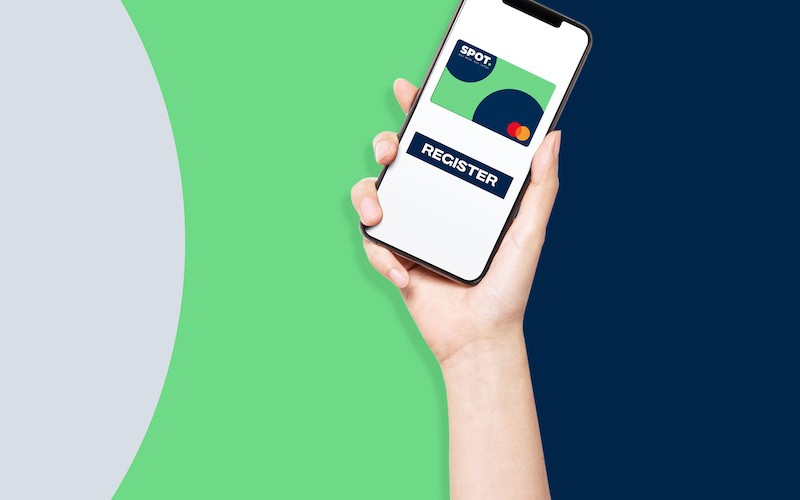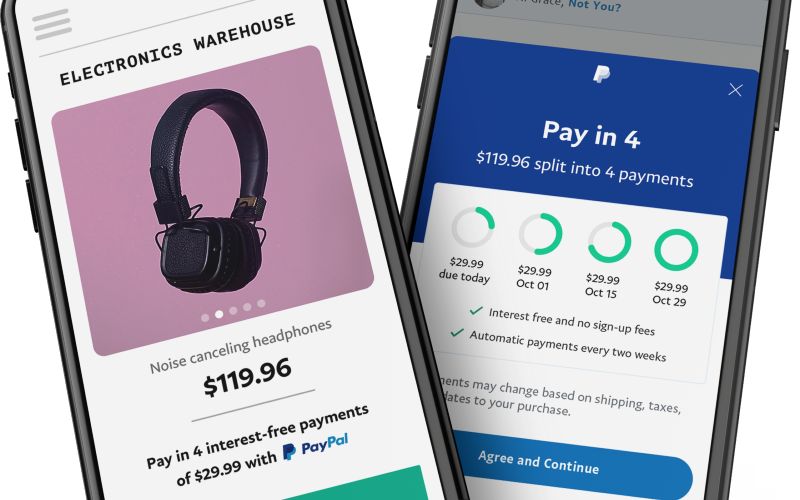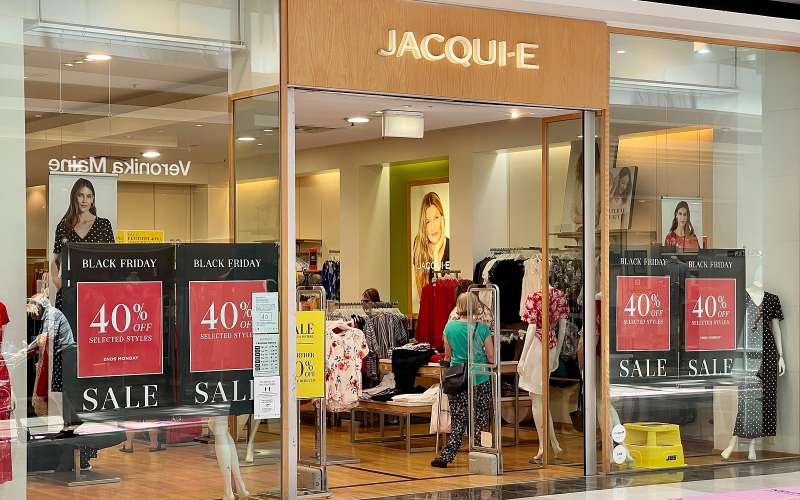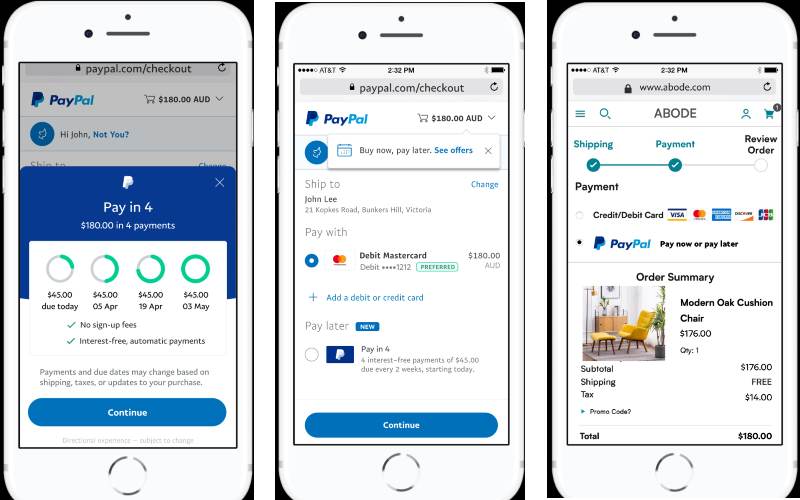The Consumer Financial Protection Bureau (CFPB) said buy now pay later in the US is frequently used in-place of credit cards and that it is looking to regulate the sector under credit card laws.
Analysing data across five BNPL platforms - Affirm, Afterpay, Klarna, Paypal, and Zip - the CFPB found they collectively provided 180 million 'loans' totalling US $24 billion in 2021 - a ten-fold increase from 2019.
The bureau's report found there were inconsistent consumer protections compared with credit cards, and that the sector is "is engineered to encourage consumers to purchase more and borrow more".
More than one-in-ten US consumers (10.5%) were charged at least one late fee in 2021, up from 7.8% in 2020.
CFPB director Rohit Chopra said BNPL is a "credit card that incorporates informercial-style payment plans".
"Many buy now pay later lenders are not offering the same clear set of dispute protections that credit card issuers have long been required to offer, which is creating chaos for some consumers when they return their merchandise or encounter other difficulties,” Mr Chopra said.
A total of 13.7% of BNPL plans in the US saw a portion of the order returned in 2021, up from 12.2% in 2020.
As a breakdown of fees, for example, Zip Co charges 1.5% of the instalment value if users do not meet the minimum payment each month; that works out to be an effective interest rate of 18% p.a.
July data from the the Reserve Bank of Australia notes the average interest rate on credit card balances accruing interest was 17.36% p.a.
Already the Australian Federal Government said it will pursue regulating the sector, and if it follows in the US' footsteps, payments expert Grant Halverson said this would be a "disaster" for the fintech players in the industry.
"This is a disaster for these freewheeling unregulated apps, most of which snub rules and don’t even fully credit check consumers, demonstrated by rising consumer complaints and massive bad debts," the former Citi and Diners Club executive said.
In Australia, there have been calls by consumer groups to regulate BNPL under the National Consumer Credit Protection Act of 2009 - currently BNPL platforms are exempt because their individual payment plans do not exceed 62 days' timeframe.
In 2021 an optional industry code for Australian BNPL platforms was introduced, which makes participating platforms adhere to appropriate hardship measures, suitability processes and be members of the Australian Financial Complaints Authority.
However Consumer Action Law Centre CEO Gerard Brody at the time said this wasn't enough.
"The industry code has far too many gaps. It isn’t mandatory and there are many BNPL companies that haven’t signed up," Mr Brody said.
"There are only vague upfront assessment processes, that do not require the company to only provide loans that are affordable and suitable."
Through 2022 the screws have tightened on BNPL companies - at one stage in the year Australian-owned Zip Co's share price tumbled more than 85% from its highs; OpenPay's declined more than 92% from peak.
Three platforms are no-longer ASX-listed - Afterpay was acquired by US-owned Block, Humm was acquired by Latitude, and Zebit delisted and returned to the US.
In July Zip Co announced it will shutter popular budgeting app Pocketbook as a cost-cutting measure; Zip posted a full-year $659 million loss in 2021.
Misconception of greater spending power with BNPL users
A joint report from the University of Sydney and credit reporting agency illion ranked buy now pay later repayment bills as fourth on a list of bills consumers are most likely to default on.
This sits behind a credit card from a non-primary bank or issuer (first); an unsecured personal loan already used-up (second); and a credit card with outstanding line of credit (third).
The least-likely bill for consumers to default on was a phone or internet plan, which researchers found was most-valued to consumers as they need it to get through everyday life.
They also found after defaulting on the top-three products, BNPL may appeal to users as there are no credit checks in most cases.
Dr Andrew Grant, the University of Sydney's senior lecturer of finance, said BNPL defaults are generally not appealing to the consumer because the payments are usually direct debit.
"If you have to call someone to change the details in your bank account to avoid a payment, it will be harder, and will have other consequences, so you are more likely to avoid it,” Dr Grant said.
Michael Landgraf, manager of bureau analytics at illion, said a common misconception among consumers is that their buying power is higher if they use BNPL in-lieu of a credit card.
"Given the consumer’s repayment preferences, this is a clear risk for credit card issuers,” Mr Landgraf said.
Advertisement
Need somewhere to store cash and earn interest? The table below features savings accounts with some of the highest interest rates on the market.
| Bank | Savings Account | Base Interest Rate | Max Interest Rate | Total Interest Earned | Introductory Term | Minimum Amount | Maximum Amount | Linked Account Required | Minimum Monthly Deposit | Minimum Opening Deposit | Account Keeping Fee | ATM Access | Joint Application | Tags | Features | Link | Compare | Promoted Product | Disclosure |
|---|---|---|---|---|---|---|---|---|---|---|---|---|---|---|---|---|---|---|---|
0.00% p.a. Bonus rate of 4.60% Rate varies on savings amount. | 5.00% p.a. Intro rate for 4 months then 4.60% p.a. | $957 | 4 months | $0 | $99,999,999 | $0 | $0 | $0 |
| Promoted | Disclosure | ||||||||
3.70% p.a. | 5.15% p.a. Intro rate for 4 months then 3.70% p.a. | $844 | 4 months | $0 | $249,999 | $0 | $1 | $0 |
| Promoted | Disclosure | ||||||||
0.05% p.a. Bonus rate of 4.95% Rate varies on savings amount. | 5.00% p.a. | $1,023 | – | $0 | $99,999 | $1,000 | $0 | $0 |
| Promoted | Disclosure | ||||||||
4.50% p.a. | 4.85% p.a. Intro rate for 4 months then 4.50% p.a. | $933 | 4 months | $0 | $99,999,999 | $0 | $0 | $0 |
| Promoted | Disclosure |

Ready, Set, Buy!
Learn everything you need to know about buying property – from choosing the right property and home loan, to the purchasing process, tips to save money and more!
With bonus Q&A sheet and Crossword!





.jpg)

 Harry O'Sullivan
Harry O'Sullivan
 Brooke Cooper
Brooke Cooper

 Harrison Astbury
Harrison Astbury


